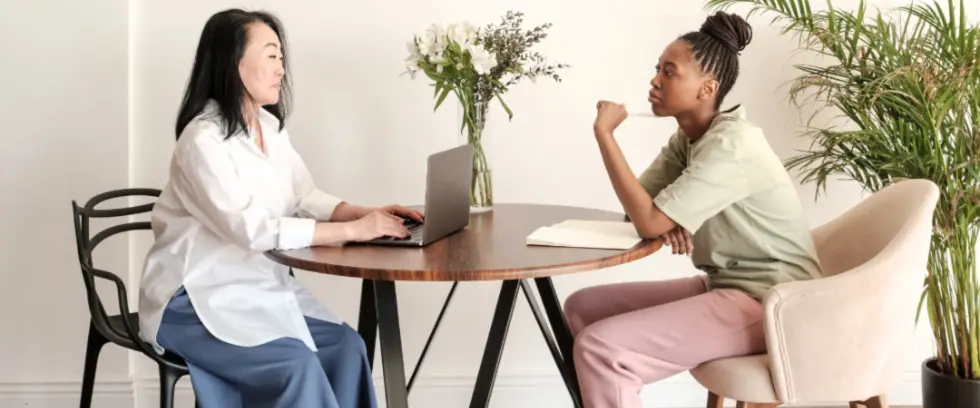Key Takeaways:
- Over the last few years, people have been relating to their primary spaces differently, especially due to increased time at home during lockdowns.
- The cold months present a similar opportunity for hibernation, one that can be challenging on mental health.
- Bringing intention to how we think about the “third places” that we take up (non-home and non-work) might be helpful in order to sustain ourselves through this winter season.
As the temperature begins to drop, the environments which we spend time in also begin to change. After the peak times of the COVID-19 pandemic, we are not strangers to staying indoors for long periods of time, and maybe we have even developed a different relationship with our home spaces. This blog post will introduce a new way of thinking about the spaces that we occupy and how to bring renewed energy to them this winter.
Sociologist Ray Oldenburg coined the term “third places” in his 1989 book The Great Good Place. Oldenburg’s book was about developing a relationship to a place in order to engage in democracy or other forms of civic responsibility, but this concept has since been expanded beyond politics.Third places exist in opposition to “first places” and “second places,” which are our homes and our places of work. Oldenburg postulated that people spend a significant part of their lives in these first two places, but the third places are the ones that root us in community, fulfill social needs, and connect us deeply to hobbies and interests.
Since Oldenburg’s book, other social scholars have extrapolated 8 characteristics or subtypes of “third places.” They are as follows:
Neutral ground
Occupants of third places have little to no obligation to be there. They are not tied down to the area financially, politically, legally, or otherwise and are free to come and go as they please.
Leveler (a leveling place)
Third places put no importance on an individual’s status in a society. One’s socioeconomic status does not matter in a third place, allowing for a sense of commonality among its occupants. There are no prerequisites or requirements that would prevent acceptance or participation in the third place.
Conversation is the main activity
Playful and happy conversation is the main focus of activity in third places, although it is not required to be the only activity. The tone of conversation is usually light-hearted and humorous; wit and good-natured playfulness are highly valued.
Accessibility and accommodation
Third places must be open and readily accessible to those who occupy them. They must also be accommodating, meaning they provide for the wants of their inhabitants, and all occupants feel their needs have been fulfilled.
The regulars
Third places harbor a number of regulars that help give the space its tone, and help set the mood and characteristics of the area. Regulars to third places also attract newcomers, and are there to help someone new to the space feel welcome and accommodated.
A low profile
Third places are characteristically wholesome. The inside of a third place is without extravagance or grandiosity, and has a homely feel. Third places are never snobby or pretentious, and are accepting of all types of individuals, from various different walks of life.
The mood is playful
The tone of conversation in third places is never marked with tension or hostility. Instead, third places have a playful nature, where witty conversation and frivolous banter are not only common, but highly valued.
A home away from home
Occupants of third places will often have the same feelings of warmth, possession, and belonging as they would in their own homes. They feel a piece of themselves is rooted in the space, and gain spiritual regeneration by spending time there.
(This list is copied and pasted from Wikipedia’s “Third Places” article)
As we re-enter society after years marked by social isolation, it might feel impossible to see yourself in some of the “third places” you used to be a part of. Acknowledge this feeling, but don’t let it direct you. Exercise choice and curiosity in thinking about your “third places.”
Think to yourself and brainstorm what “third places” you have in your life that match these subtypes. If you are feeling challenged to come up with any or many, flag this as a growth area to focus intentional energy on moving forward. Our environments impact our mental wellbeing, and having options – when desired and accessible – for what those environments look like can make a huge difference.
Ask yourself what are some of the new “third places” that you’d like to explore – virtually or in person. Allow these to be thoughts, rather than goals. Lean into creativity and excitement.

Author: Anton Babushkin, PhD
Looking for a Therapist? Start My Wellness has highly experienced Licensed Therapists that are currently accepting new patients.


